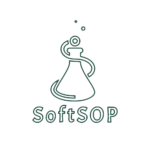The Skills Gap in 21st-Century Manufacturing
American workers are increasingly falling behind in core competencies—math, literacy, comprehension, and technical skills—required by advanced manufacturing and food industry operations. Recent studies reveal that 34% of U.S. adults have math skills below primary level, and the nation ranks only 15th in adaptive problem-solving and 24th in numeracy among 31 industrialized countries.
This underperformance threatens U.S. leadership in advanced manufacturing and food production sectors, where compliance with ISO 9001:2015, HACCP, and CFR regulations is mandatory for safety, quality, and traceability.
The Challenge: Skills Gap Meets Economic and Industry Imperatives
Even as U.S. manufacturing jobs rebound—now exceeding 13 million—companies face a critical shortage of skilled workers. NIST projects that up to 2.1 million manufacturing roles could remain unfilled by 2030 due to skill mismatches. This shortage risks productivity, compliance, and competitiveness across food processing, packaging, and distribution.
Addressing this challenge requires balancing multiple objectives simultaneously:
- Fill jobs and boost economic growth
- Strengthen compliance and quality in food production
- Protect public health and the environment
- Maintain global industrial leadership
Simplistic slogans won’t suffice. What’s required is technocratic rigor—data-driven strategies that identify solutions and guide effective implementation.
America’s Five-Part Strategy for Workforce Renewal
To close critical gaps and prepare the workforce for 21st-century demands, coordinated action across five pillars is essential:
- Expand Postsecondary Education Access
- Prioritize vocational, STEM, and food science programs.
- Develop advanced math and technical skills from middle/high school onward to align with industry needs.
- Modernize National Infrastructure
- Invest in smart manufacturing hubs, automated processing lines, and digital supply chains.
- Ensure infrastructure projects are efficient, scalable, and strategically managed.
- Welcome Skilled Immigrants
- International students and professionals contribute to innovation and knowledge transfer.
- Compete globally to attract top talent in food science, engineering, and technology.
- Craft Smart, Balanced Regulations
- Well-designed environmental and safety standards encourage innovation while ensuring compliance.
- Avoid over-regulation that stifles growth in manufacturing and food sectors.
- Boost R&D Investment in Frontier Sciences
- Fund research in biotechnology, food safety, packaging innovation, and AI-driven process optimization.
- Sustained investment ensures U.S. leadership in advanced manufacturing and food industry innovation.
Technocratic Governance for Sustainable Growth
A five-part strategy alone is not enough. Evidence-based policymaking, expert councils, transparent data systems, and public engagement are crucial. Technocratic governance enables sustainable economic growth while maintaining democratic accountability.
Empowering Individuals: SoftSOP Role
Platforms like SoftSOP.com empower workers to upskill in critical areas such as:
- Math, science, and technical proficiency relevant to food manufacturing
- Regulatory compliance, including ISO 9001:2015, HACCP, SQF, and BRC standards
- Operational best practices, including sanitation, traceability, and documentation
By combining national strategies with individual empowerment, SoftSOP.com bridges educational gaps and strengthens workforce readiness in highly regulated industries.
Conclusion: Skills, Strategy, Sustainability
The skills gap is urgent and impactful. A five-pronged national approach—education, infrastructure, immigration, smart regulation, and R&D—paired with technocratic governance ensures:
- A skilled, adaptable, and compliant workforce
- Growth and competitiveness in manufacturing and food production
- Safe, high-quality, and sustainable food industry practices
Platforms like SoftSOP.com reinforce these efforts, equipping individuals with practical tools and knowledge to succeed, fostering a future-ready workforce and sustainable prosperity for generations.
Recent Coverage
Recent Coverage on Skills, Economy & Sustainability
TIME Magazine
Achieving Sustainable Growth Requires Rethinking the Economy
This piece introduces the concept of “Sustainomy,” advocating for an economic model that balances prosperity, people, and the planet.
Read the full article
The Wall Street Journal
In a Test of Adult Know-How, America Comes Up Short
This article discusses the decline in basic skills among U.S. adults, highlighting challenges in literacy, numeracy, and problem-solving abilities.
Read the full article
The Times of India
8 Million Jobs Unfilled: McMahon Questions US College System as AI and Manufacturing Gaps Widen, Calls for Middle and High School Reforms
Linda McMahon critiques the U.S. education system’s alignment with current labor market needs, emphasizing the urgency for curriculum reforms.
Read the full article

